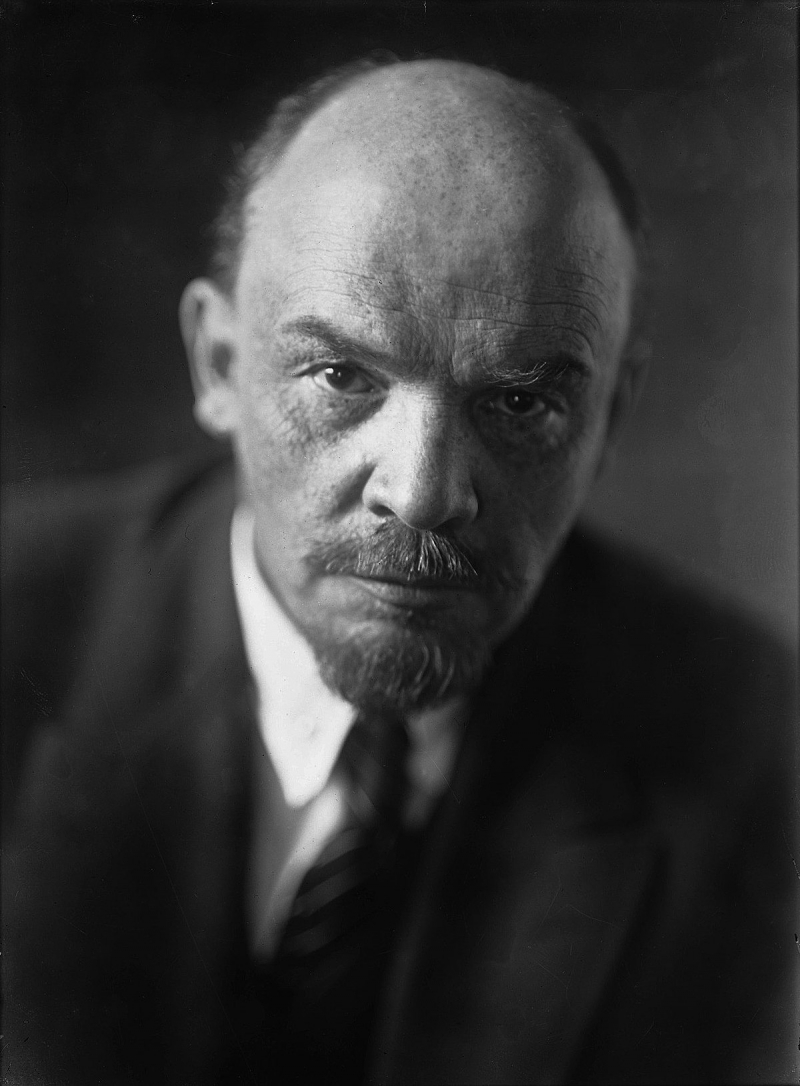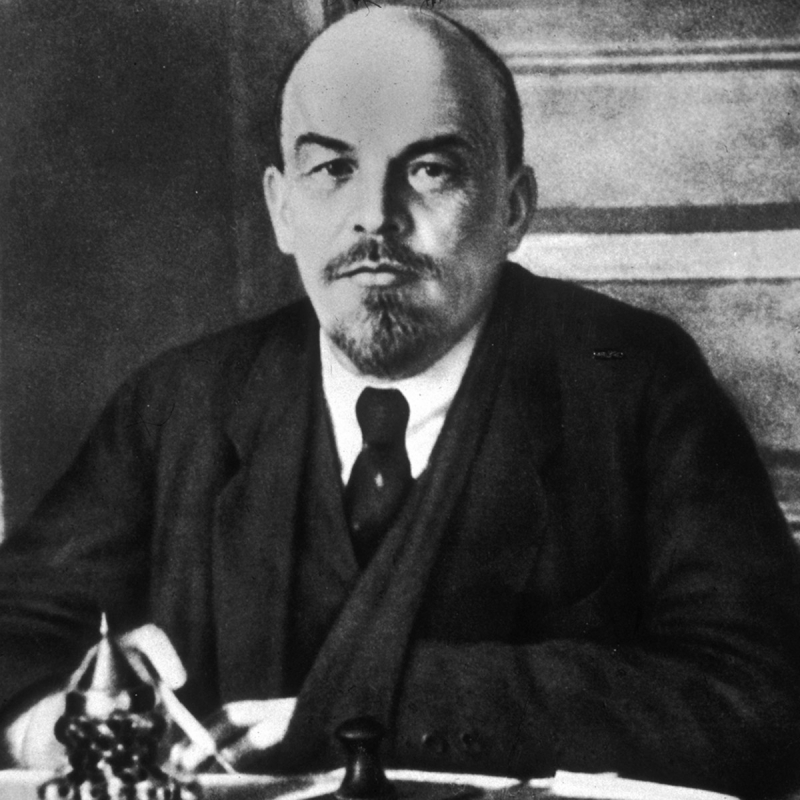Vladimir Lenin
Vladimir Ilyich Ulyanov, better known as Vladimir Lenin, was a Russian revolutionary, politician, and political theorist who lived from 22 April 1870 to 21 January 1924. From 1917 to 1924, he was the first and founding head of government of Soviet Russia, and from 1922 to 1924, he was the first and founding head of government of the Soviet Union. Russia, and later the Soviet Union, became a one-party socialist state ruled by the Communist Party under his administration. Marxist in ideology, his ideological developments are known as Leninism.
Following his brother's execution in 1887, Lenin embraced revolutionary socialist politics after being born into an upper-middle-class family in Simbirsk. Expelled from Kazan Imperial University for protesting against the Russian Empire's Tsarist government, he spent the years that followed pursuing a law degree. In 1893, he moved to Saint Petersburg and became a senior Marxist activist. In 1897, he was arrested for sedition and sentenced to three years in exile in Shushenskoye, Siberia, where he married Nadezhda Krupskaya. Following his exile, he relocated to Western Europe, where he rose to prominence as a theorist in the Marxist Russian Social Democratic Labour Party (RSDLP). He played a key role in the RSDLP's ideological split in 1903, leading the Bolshevik faction against Julius Martov's Mensheviks. Following Russia's failed Revolution of 1905, he campaigned for the First World War to be transformed into a Europe-wide proletarian revolution, which he believed, as a Marxist, would result in the overthrow of capitalism and its replacement with socialism. After the February Revolution of 1917 deposed the Tsar and established a Provisional Government, he returned to Russia to play a key role in the October Revolution that overthrew the new regime.
Lenin's Bolshevik government initially shared power with the Left Socialist Revolutionaries, elected soviets, and a multi-party Constituent Assembly, but by 1918, power had been centralized in the newly formed Communist Party. Lenin's regime redistributed land to peasants and nationalized banks and large-scale industry. It exited World War I by signing a treaty ceding territory to the Central Powers, and it promoted global revolution through the Communist International. Opponents were suppressed during the Red Terror, a violent campaign run by the state security services that resulted in the deaths of tens of thousands or internment in concentration camps. In the Russian Civil War from 1917 to 1922, his administration defeated right and left-wing anti-Bolshevik armies and oversaw the Polish-Soviet War from 1919 to 1921. In response to wartime devastation, famine, and popular uprisings, Lenin implemented the New Economic Policy in 1921. After 1917, several non-Russian nations gained independence from the Russian Empire, but three were re-united in the new Soviet Union in 1922. As his health deteriorated, Lenin died in Gorki, leaving Joseph Stalin as the preeminent figure in the Soviet government.
Lenin, widely regarded as one of the twentieth century's most significant and influential figures, was the posthumous subject of a pervasive personality cult within the Soviet Union until its dissolution in 1991. He rose to prominence as an ideological figurehead for Marxism-Leninism and a major influence on the international communist movement. Lenin, a contentious and divisive historical figure, is regarded by his supporters as a champion of socialism and the working class. Meanwhile, critics accuse Lenin of establishing a totalitarian dictatorship that presided over mass murders and political repression.












